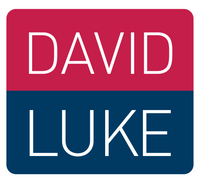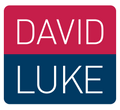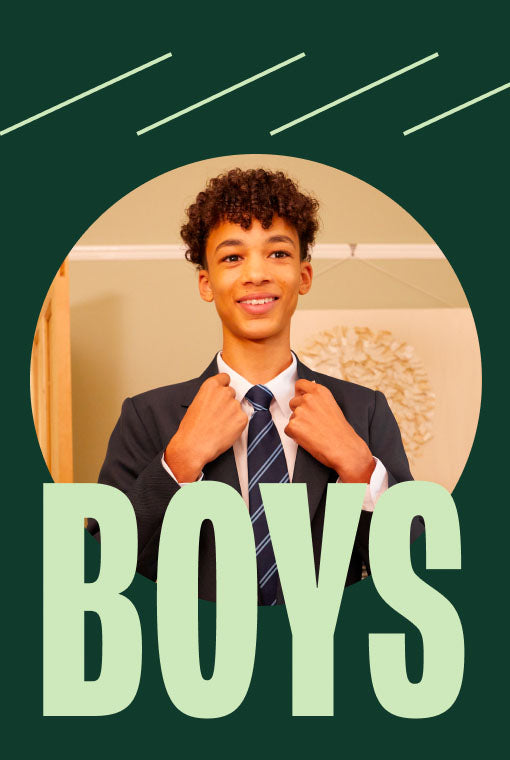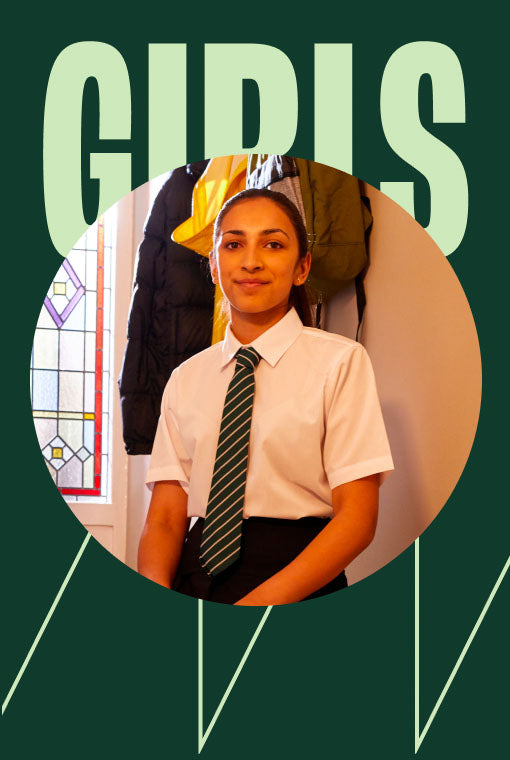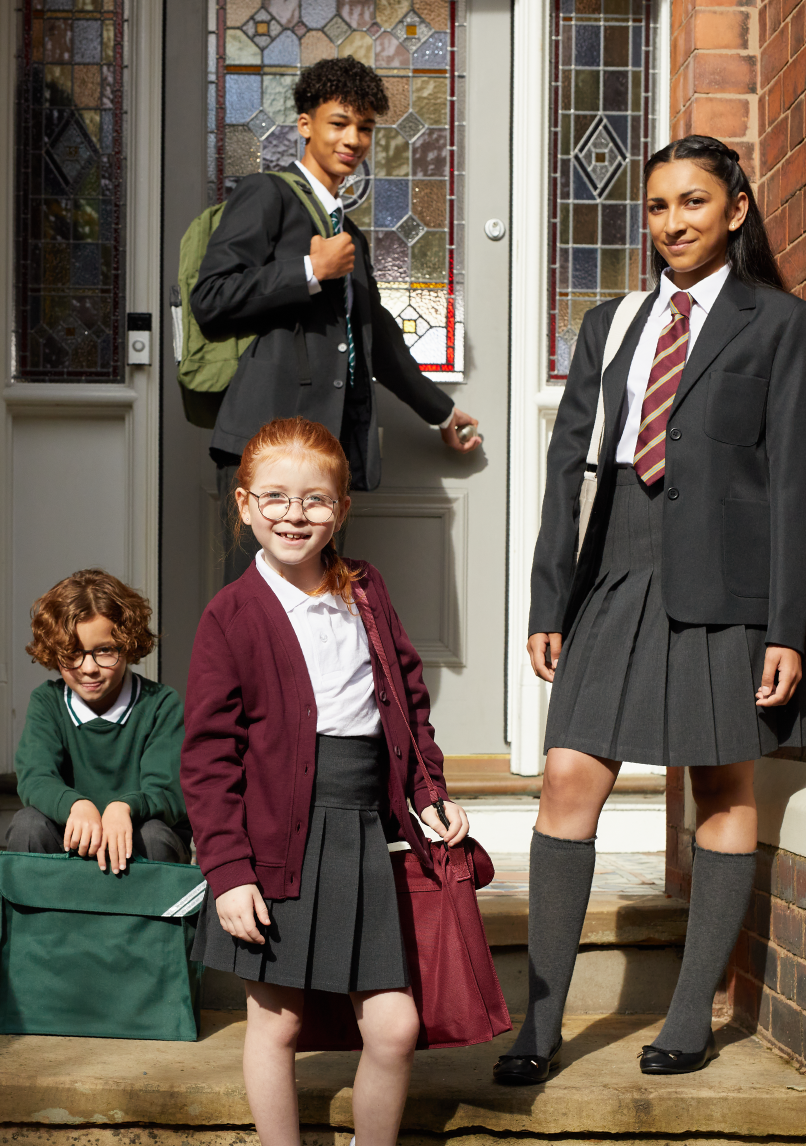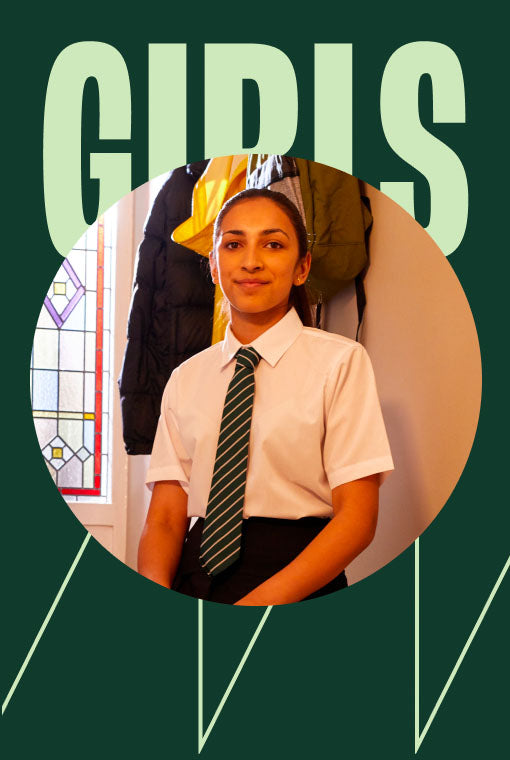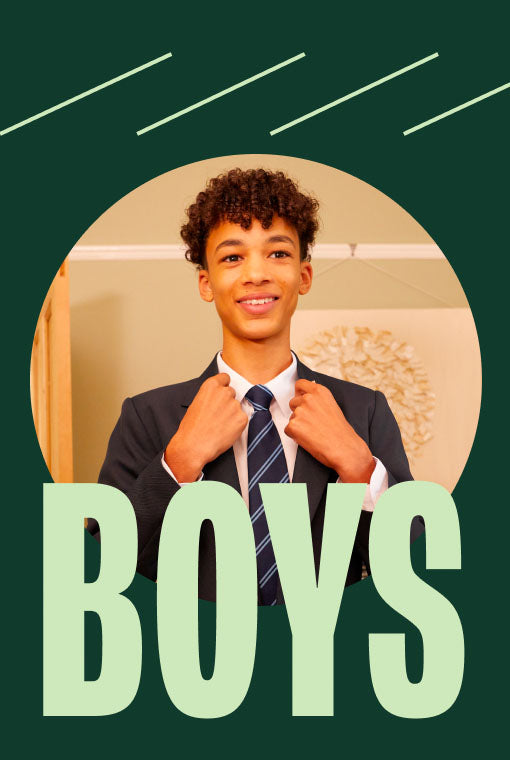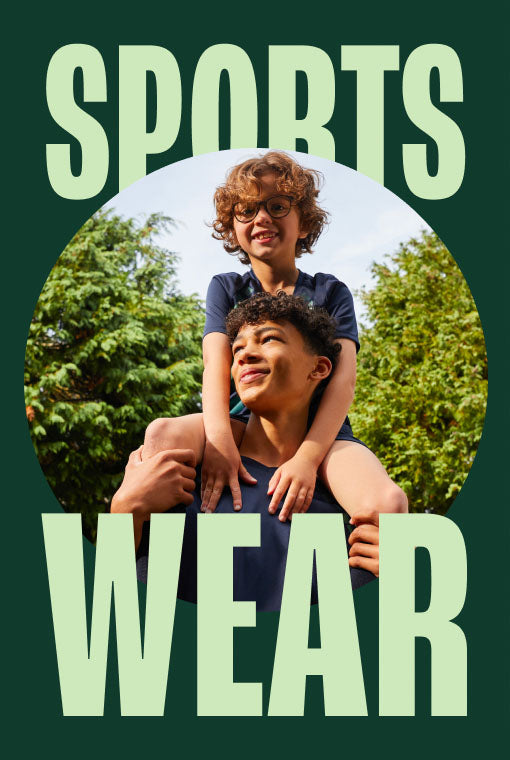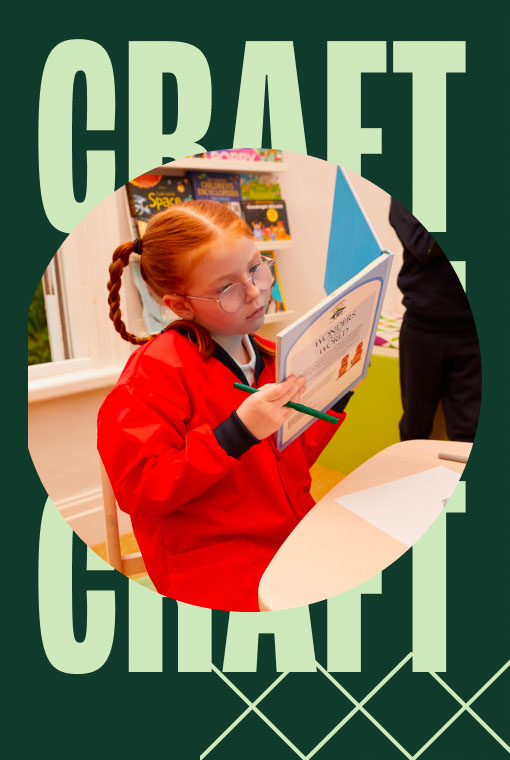Clothing ·
How to build a sustainable business
This Dad and Daughter Have Been Going Back To School for 37 Years
Over the years, our business has demonstrated a progressive and respected reputation for innovation in sustainability. We were the first in our industry to develop recycled polyester yarn from plastic bottles which we used to make blazers. In fact, 2020 saw us celebrate our 10-year eco-versary. That is a whole decade of doing things a different way, by making our school uniforms out of recycled polyester. And it seems the British Retail Consortium are upping their sustainability game too. Recently declaring they will tackle the causes of climate change. Meaning, it is likely we will see more businesses committing to sustainable practices. So, we sat down and chatted with our founder, David and Managing Director, Kathryn. to find out what has motivated them on their 10-year journey and how they have built a sustainable business.What prompted you to look at the possibility of using recycled polyester in school uniform back in 2009?
David: I’ve always been a recycler, a waste nothing-er and carer for the environment. I must say that I was initially driven to create a Competitive Advantage, but realised it was much more important than that. Various recycled textiles, mainly shredded production waste re-spun, had been around for a long time, but not in the types of yarns suitable for Schoolwear. Polyester yarn, made from plastic bottles, captured my imagination. David Luke helped to develop the octolobal yarn for the twill fabric, which became the start of the David Luke Eco Revolution in Schoolwear.You were obviously ahead of the general public consciousness in terms of developing such a specific eco-product – how hard was it to raise awareness of the term ‘eco uniform’ what kind of barriers did you encounter?
David: I knew the timing was absolutely right. At first, I had my leg pulled by some competitors. It does seem ironic, but not surprising, that those same people are now beginning to follow. Price was an issue, it always is, but once we reduced our margin to make the Blazers and Jackets the same price as non-Eco, we were on the way to something special. I had a vision of changing every fabric to Eco. We’re not quite there yet, but we’ve made fantastic progress. Since David Attenborough captured the imagination of the world about plastic waste, the concept has come of age.Can you share some of your personal highlights from the past 10 years with regard to David Luke’s progress in becoming a sustainable business?
David: I remember a visit to a yarn mill to discuss how we needed to produce the yarn at the same price as non-eco. They couldn’t believe my reasoning, they wanted a premium, but I wanted to change the way the market accepted the Eco concept. When we sold our Millionth Eco Blazer and had a ”Golden” Blazer made to celebrate, what a thrill, as we saw we had saved tens, now hundreds, of millions of bottles going into landfill and the oceans, I felt something really important happening.How do you think the School Uniform industry has changed with regard to its opinion on the importance of eco uniform and sustainability? Is there any area of the industry where you would like to see more progress?
David: There is still such a focus on price, but society in general and especially the children and students are understanding the issues and will change the way we all think. We need to buy less, but better quality with environmental credentials, which will last longer representing real value and can be passed on to siblings, or friends, or to people in need.How does it make you feel seeing so many fashion brands and fellow uniform manufacturers embracing the concept of eco garments?
David: I am delighted, especially because David Luke have played such a key role in leading the School Uniform market. The challenge is to keep leading and taking the next steps, towards responsibility and sustainability goals for the future. The next 10 years will see David Luke developing new ideas for a new decade. We are already on our way!In terms of predicting the next big leap in sustainable business, what advice would you give to your daughter Kathryn who is now Managing Director of David Luke?
David: The next leap is already here. We all have to live our lives with more responsible thinking for the future of our planet and run our businesses accordingly. Always look for the right way and embrace the future with optimism and excitement. The great thing about running your own business is that you can take the long view. It gives you a fantastic advantage over those who have to focus on making short term decisions in order to make their business more attractive to would-be suiters. A sustainable business demands the long view.Before you joined David Luke, was sustainability on your radar as a business issue?
Kathryn: Sustainability is a word that has been used within business for a long time and runs the risk of becoming over-used. But when thinking about the universal definition – ‘Meeting the needs of the present without compromising the ability of future generations to meet theirs’, it has always been a principle that I’ve strongly believed should be at the centre of every responsible business.As a sustainable business, we take caring for the world around us very seriously. Within a global supply chain, it’s challenging to tackle every element from fibre to garment end of life.
